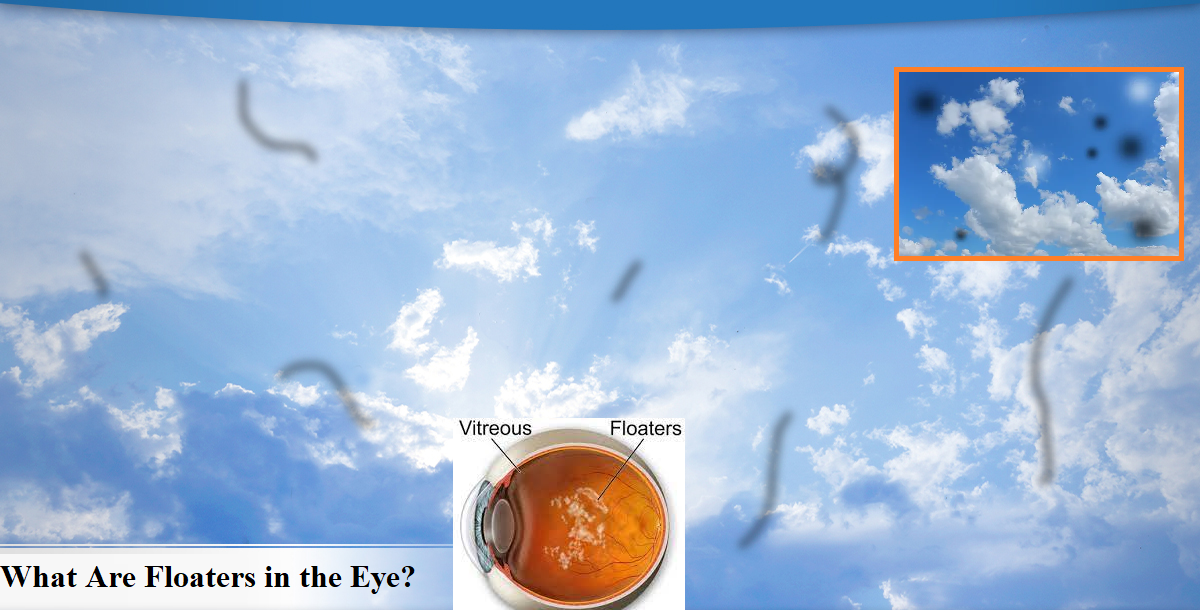Floaters in the eye are tiny spots, strings, or cobweb-like shapes that drift across your field of vision. These shapes can appear as dark specks or shadowy outlines, and while they may seem to be on the surface of your eye, they actually float inside. Eye floaters are quite common, especially as people age, and they’re usually harmless. However, they can be bothersome or, in rare cases, signal an underlying eye condition.
What Causes Eye Floaters?
Floaters are caused by tiny clumps of a gel-like substance called the vitreous, which fills the inside of your eye. As you age, the vitreous becomes more liquid and begins to shrink. When this happens, it can form small clumps of undissolved gel or strands that cast shadows on the retina, the light-sensitive tissue at the back of the eye. These shadows are what you perceive as floaters. Common causes of eye floaters include:- Aging: The most common cause of floaters is natural aging. After the age of 50, the vitreous humor starts to change consistency, becoming more liquid-like, which can lead to the formation of floaters.
- Posterior Vitreous Detachment (PVD): In some cases, the vitreous can separate from the retina, a condition known as PVD. While it’s generally not harmful, it can result in a sudden increase in floaters and flashes of light.
- Inflammation in the Eye: Conditions such as uveitis, which causes inflammation in the eye, can lead to floaters due to the release of inflammatory cells into the vitreous.
- Eye Injuries or Surgeries: Trauma to the eye or surgical procedures like cataract removal can cause floaters to develop.
- Bleeding in the Eye: Sometimes blood vessels in the retina can break, causing blood to leak into the vitreous. This can cause a temporary appearance of floaters.
Are Floaters Dangerous?
In most cases, floaters are harmless and part of the natural aging process. However, they can sometimes indicate a more serious problem, especially if they appear suddenly or in large numbers. A sudden increase in floaters, accompanied by flashes of light or a partial loss of vision, may indicate retinal detachment, a medical emergency that requires immediate attention.When Should You See a Doctor?
Although floaters are usually not serious, you should consult an eye doctor if you experience any of the following:- A sudden increase in the number or size of floaters.
- Flashes of light in your vision.
- A shadow or curtain effect across your field of vision.
- Pain in the eye or changes in vision.
Can Eye Floaters Be Treated?
In most cases, floaters do not require treatment. Over time, they may become less noticeable as your brain adjusts to them, or they may move out of your line of sight. However, if floaters are persistent and severely affect your vision, a few treatment options are available:- Vitrectomy: In this surgical procedure, the vitreous is removed and replaced with a saline solution. This can eliminate floaters, but it's generally reserved for severe cases because it carries risks, including retinal detachment and infection.
- Laser Treatment: A laser can be used to break up floaters, making them less noticeable. This procedure is less invasive than vitrectomy but is not commonly performed and may not be effective for all types of floaters.
Preventing Eye Floaters
While floaters are often a natural part of aging, there are a few steps you can take to maintain overall eye health:- Regular Eye Exams: Routine visits to an eye doctor can help catch any changes in your vision or eye health early on.
- Manage Health Conditions: Conditions like diabetes or high blood pressure can contribute to eye problems, including floaters, so managing these conditions is crucial.
- Protect Your Eyes: Wear protective eyewear during activities that could cause injury, such as sports or home improvement projects.
Conclusion
Floaters in the eye are typically harmless and a natural part of aging, but it’s essential to monitor any sudden changes in your vision. If you notice an increase in floaters, flashes of light, or any vision loss, seek medical attention immediately, as these could be signs of a more serious condition. Regular eye exams and good eye care can help maintain your vision and detect any issues early.Read more :
1= https://checkwebsitedr.com/blogs/what-are-floaters-in-the-eye/
2= https://checkwebsitedr.com/blogs/what-activities-are-in-oranjestad-aruba-near-the-airport/
3= https://checkwebsitedr.com/blogs/what-teams-are-in-the-playoffs/
4= https://checkwebsitedr.com/blogs/what-states-are-not-represented-in-the-olympics/
5= https://checkwebsitedr.com/blogs/what-are-the-three-signs-of-protein-deficiency/


